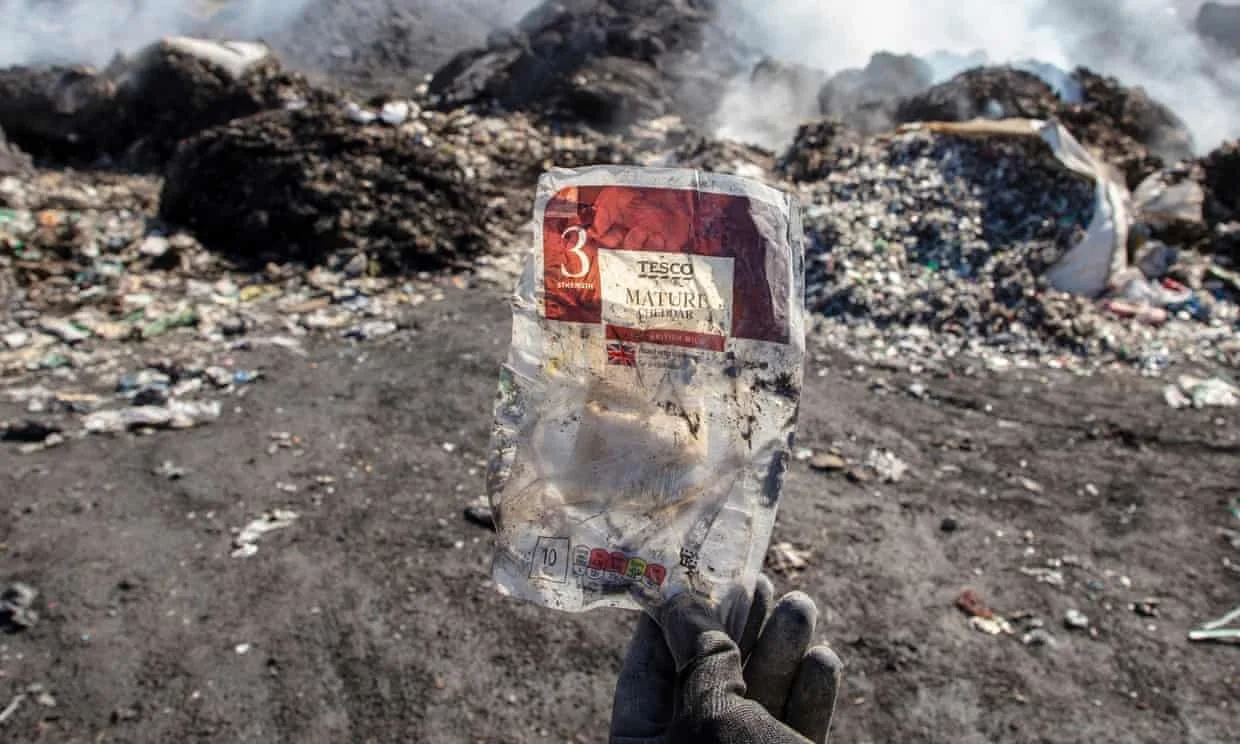Why do we send plastic waste overseas?
Greenpeace UK’s brilliant yet unsettling film ‘Wasteminster’ that highlights the plastic waste export crisis, quickly amassed millions of views and achieved viral status.
In just under 2 minutes, the film successfully articulates how whimsically this government pays lip service to addressing the plastic problem, whilst evoking images of just how much plastic waste we send overseas every single day.
The film accompanied ‘Trashed’ a Greenpeace investigation into how much plastic waste the UK exports, where it ends up and what happens when it reaches its destination. Since China closed its doors to plastic waste from other countries under its quaintly titled National Sword policy, we’ve been sending 30% of our waste to Turkey instead.
Why do we send plastic overseas?
We have too much to deal with. It is that simple. The sheer volume of plastic waste generated each year vastly exceeds the UK’s capacity to recycle it.
My colleague Dr Julie Schneider, an earth scientist, helped me to work out that of the 4,490 pieces that I chucked in the bin, 289 pieces (6.4%) would be exported. Taken as an average, multiplying that figure by the number of people living in this country would result in 19 billion pieces of plastic being shipped abroad every year.
Underneath these images and stats lie embedded systemic issues that will need to be addressed before we can stop shipping our waste overseas.
Government and industry can’t even disguise their failures
Between 2002 and 2017, the quantity of packaging waste exported for recycling abroad increased by 600%, while the quantity recycled in the UK has remained the same. However, we’re somehow still nailing our EU recycling target. This may have something to do with the government’s definition of recycling which deceitfully includes waste that is collected, exported and downcycled.
Sworn protector of plastics industry interests, The British Plastics Federation, even states that “the UK currently exports plastic because there is not enough capacity within the UK to recycle it. In 2019, the UK exported 61% of its plastic packaging for recycling”. That’s almost two-thirds! That certainly doesn’t sound like the behaviour of a ‘sovereign nation’ that’s ‘taking back control’.
Exploring our plastic waste is a social justice offence
Pictures of Tesco bags escaping from compressed bales of plastic, impotently sat in a yard in Malaysia, Vietnam or Turkey are becoming more prevalent. The 2016 film ‘Plastic China’ gives the perfect example of how waste export impacts people living in extreme poverty.
The film follows 11-year old Yi Jie and her family as they work, live, play, eat and sleep amongst exported plastic waste sent from Europe, Japan, USA, South Korea amongst others. It documents just how poor the conditions are for the thousands of deeply impoverished people from China, Malaysia, Vietnam, Turkey, Indonesia etc., all of whom are forced into processing MILLIONS of tonnes of OUR plastic waste.
Filmmaker Wang Jiuliang spent 18 months living with the two families at their small, inefficient and under-equipped processing plant. Barely sheltered from the weather, the families live in one room amongst rubbish branded with familiar names such as Flora, Highland Spring and Tesco. They are too poor to live anywhere else, too poor to return to their villages, too poor to send their children to school or to buy them toys.
Kun, the factory owner, complains that the toxicity of granulating and burning plastic has caused poor health and is too scared to go to the doctors to check tumours in his side. He's not even 30 years old.
A multi-layered and complex problem
At least a fifth of local councils in the UK felt a direct impact from China’s restrictions on imports. Before China stopped any more of our waste entering the country, it might have worked out cheaper to ship waste overseas than it would to transport it domestically. Thanet District Council (TDC), my local authority, is one of the many to have had its core government funding support completely withdrawn. Exporting waste provides the likes of TDC with a vital income stream. Without it, we could see further increases to the cost of parking and business rates. Along with it, cuts to core services such as social and health care, community support and infrastructure.
While the government announced a new plastic tax and more stringent obligations for producers to contribute more for recycling (currently they only chip in 10% and we pay the rest), we’re still yet to see how this will work. Retailers and manufacturers are on a packaging production rampage like never before, meanwhile councils and taxpayers are taking heavy financial hits due to export bans and recycling costs.
You don’t have to search deeply to find the cause
Plastic packaging waste is an urgent environmental problem because we crave plastic-wrapped convenience as zealously as we are sold it. The export of waste simply provides politicians with another excuse to ignore the main issue at hand here – consumerism – a result of production and consumption on a scale that global waste management infrastructure is not and will never be capable of handling.
To tackle the problem we are focusing our campaigning actions around Everyday Plastic items with the largest impact on our environment - currently food packaging.
Educating and providing evidence-based research like this to show you what is really going on out so you can make changes accordingly that will make a difference.
Simples changes that can help us reduce our plastic consumption by 50% to reduce waste exports:
- Choose Loose fruit and vegetables where you can at the supermarket
- Refill things like shampoo, showergel or buy soap bars without packaging
- Consider getting milk delivered from MilkandMore.



